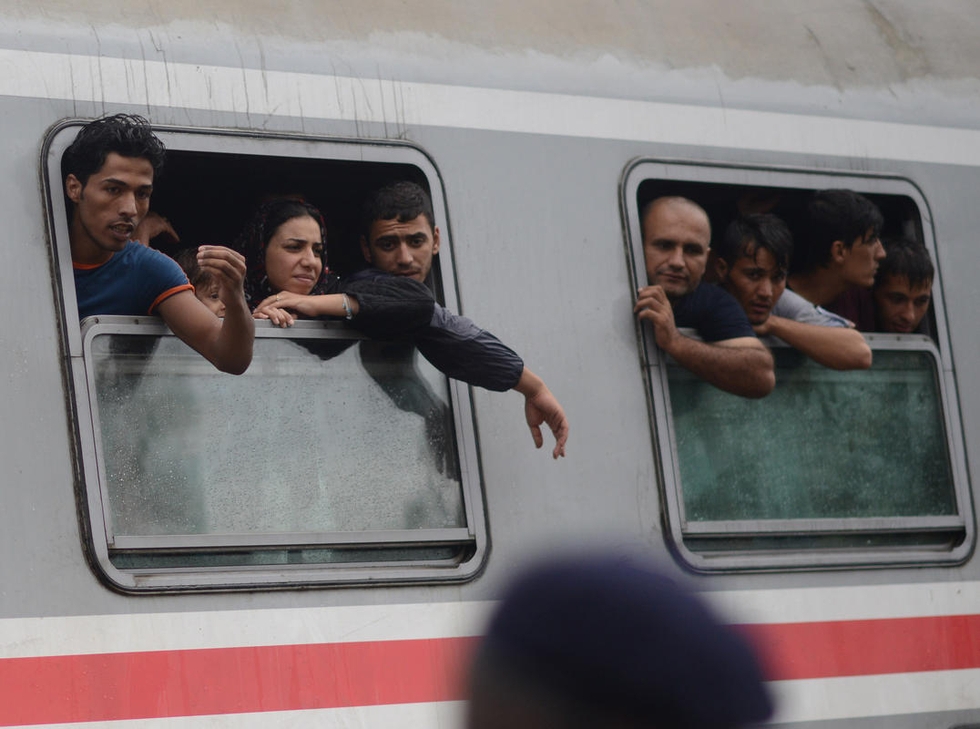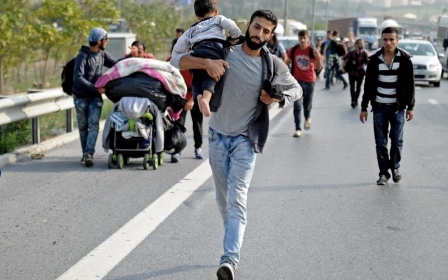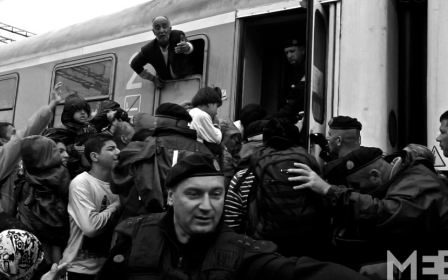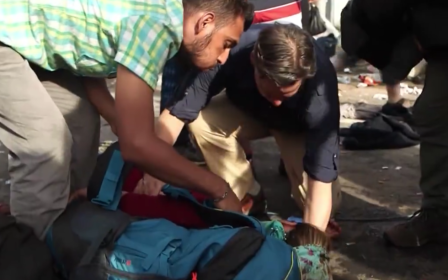UN calls for refugee 'solidarity' ahead of EU summit

The UN refugee chief has called for European states to show solidarity in their response to the continent's worst refugee crisis since World War II, ahead of emergency EU talks scheduled for Wednesday.
"There is no way to resolve a crisis of this dimension if each country acts alone and based solely on its own interests," United Nations High Commissioner for Refugees Antonio Guterres told Portuguese broadcaster RTP on Tuesday.
"Hundreds of thousands of refugees have arrived in Europe since the beginning of the year," said Guterres, a former Portuguese prime minister.
"But the European Union counts 500 million inhabitants. If there was a real policy of solidarity, the problem would be easily handled."
On Tuesday, EU interior ministers were set to meet in Brussels to discuss controversial binding quotas to relocate 120,000 refugees around the EU from frontline states Greece, Italy and Hungary after they failed to reach a deal last week, and ahead of a full summit of the bloc's 28 leaders on Wednesday.
Despite so far failing to reach a deal on the larger figure, EU ministers last week formally approved a plan first floated in May to relocate 40,000 refugees from Greece and Italy.
The UNHCR has estimated that at least 200,000 relocation spots will be needed by the end of 2016, and spokeswoman Melissa Fleming said on Tuesday that that number would likely need to be revised upwards.
She stressed the urgent need for EU countries to agree on how to manage the crisis "that is becoming increasingly chaotic and unpredictable".
"We believe this may be the last opportunity for a coherent European response to manage a crisis that is increasing suffering and exploitation of refugees and migrants and it is also increasing the tension between countries," she told reporters in Geneva.
'Distinguish the refugees from those who are not'
The UN agency has proposed a number of measures for addressing the crisis, including the immediate creation of facilities in Greece and expansion of existing facilities in Italy with the capacity to receive, assist, register and screen the hundreds of thousands arriving by sea.
UNHCR said Tuesday that a total of 477,906 people had made the perilous journey across the Mediterranean so far this year, with an average of 6,000 people now arriving daily on European shores.
Nearly 2,900 have died trying, according to the International Organisation for Migration.
Pressure has also heaped on countries along the refugee trail, some of which have closed their borders while others have diverted the flow elsewhere.
Guterres also stressed the importance of a proper registration procedure to make it possible to "distinguish the refugees from those who are not".
This way, people entitled to refugee status could take part in the relocation programme under discussion, while those not considered refugees could be "sent back to their countries of origin in a way that respects their dignity," he said.
A common solution "demands an investment, a mobilisation of resources and a political determination that until now has been lacking," Guterres said.
Fleming meanwhile insisted the crisis facing Europe is "primarily a refugee crisis," pointing out that 97 percent of the some 347,000 who have arrived in Greece so far this year come from conflict zones like Syria and Afghanistan.
EU 'last chance' deal
In an interview with several European newspapers, French Foreign Minister Laurent Fabius warned the "raison d'etre of Europe" was at stake, while the OECD grouping of developed countries said the continent had the capacity and an "obligation" to absorb migrants and refugees fleeing conflict and poverty.
On the eve of the talks, UN chief Ban Ki-moon urged leaders across the EU to "show leadership and compassion".
Newly re-elected Greek Prime Minister Alexis Tsipras meanwhile called for responsibility to be shared, saying "otherwise there is no point in talking about a united Europe".
Germany champions a relocation plan that would force EU member states to take in a pre-determined number of migrants and refugees, but many countries in eastern Europe reject binding quotas.
Sources in Brussels said EU ministers were considering a watered-down plan that would drop binding quotas and leave Hungary out of the scheme, as it refuses to be part of it.
Budapest has taken the toughest stance on the crisis, erecting razor-wire barriers along its borders with Serbia and Croatia in a bid to keep migrants out, and broadening the military's powers.
'Joint collective action'
On Monday, MPs voted to give troops at Hungary's borders the right to use rubber bullets, tear gas and net guns - devices that fire netting to entangle the target - in a non-lethal way "unless it cannot be avoided".
Last week, other legislation came into force allowing Hungary to jail anyone caught crossing the border illegally, which carries a maximum fine of five years in prison.
Top diplomats from Hungary, Poland, Slovakia and the Czech Republic, all of whom have rejected the EU proposal for binding refugee quotas, met in Prague on Monday with their counterpart from Luxembourg, which holds the EU presidency.
Despite their opposition to the proposal, Czech Foreign Minister Lubomir Zaoralek insisted they were "absolutely dedicated" to reaching an agreement with fellow EU nations, acknowledging the need for "joint collective action to accelerate the solution to the still very painful situation".
On the ground, thousands of people are still on the move across Europe, many trying to reach the perceived safe havens of Germany and Sweden, or going further afield.
In the French port city of Calais, a group of nearly 400 people - mostly Syrian refugees desperate to cross the Channel to England - were left without shelter on Monday after police broke down several makeshift camps that have sprung up, firing tear gas to fend off protesters.
New MEE newsletter: Jerusalem Dispatch
Sign up to get the latest insights and analysis on Israel-Palestine, alongside Turkey Unpacked and other MEE newsletters
Middle East Eye delivers independent and unrivalled coverage and analysis of the Middle East, North Africa and beyond. To learn more about republishing this content and the associated fees, please fill out this form. More about MEE can be found here.




